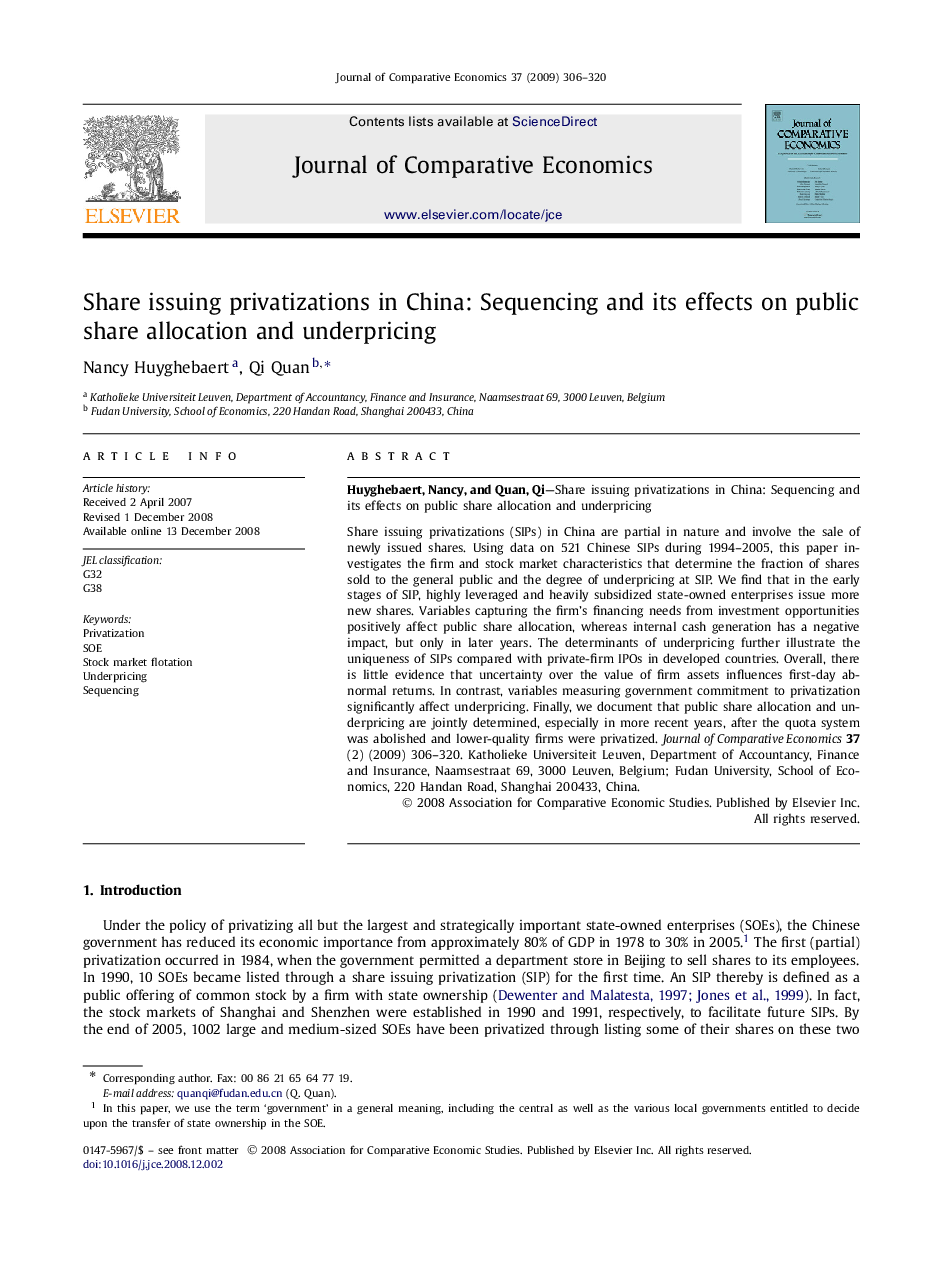| Article ID | Journal | Published Year | Pages | File Type |
|---|---|---|---|---|
| 5092449 | Journal of Comparative Economics | 2009 | 15 Pages |
Abstract
Share issuing privatizations (SIPs) in China are partial in nature and involve the sale of newly issued shares. Using data on 521 Chinese SIPs during 1994-2005, this paper investigates the firm and stock market characteristics that determine the fraction of shares sold to the general public and the degree of underpricing at SIP. We find that in the early stages of SIP, highly leveraged and heavily subsidized state-owned enterprises issue more new shares. Variables capturing the firm's financing needs from investment opportunities positively affect public share allocation, whereas internal cash generation has a negative impact, but only in later years. The determinants of underpricing further illustrate the uniqueness of SIPs compared with private-firm IPOs in developed countries. Overall, there is little evidence that uncertainty over the value of firm assets influences first-day abnormal returns. In contrast, variables measuring government commitment to privatization significantly affect underpricing. Finally, we document that public share allocation and underpricing are jointly determined, especially in more recent years, after the quota system was abolished and lower-quality firms were privatized. Journal of Comparative Economics 37 (2) (2009) 306-320.
Related Topics
Social Sciences and Humanities
Economics, Econometrics and Finance
Economics and Econometrics
Authors
Nancy Huyghebaert, Qi Quan,
